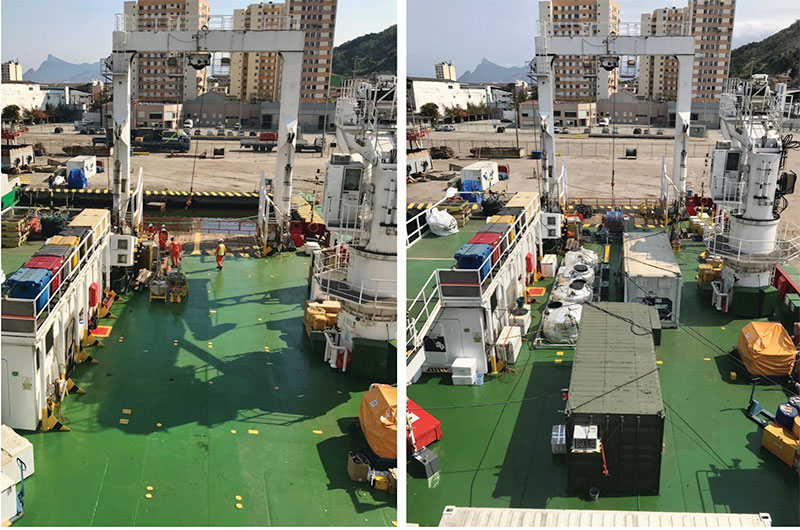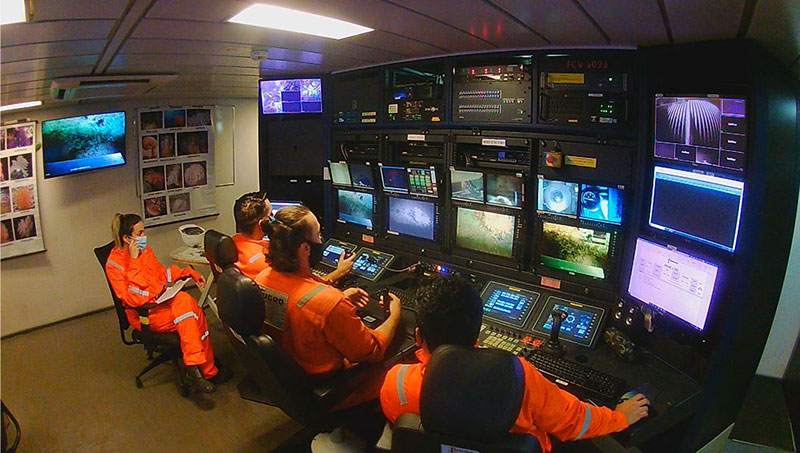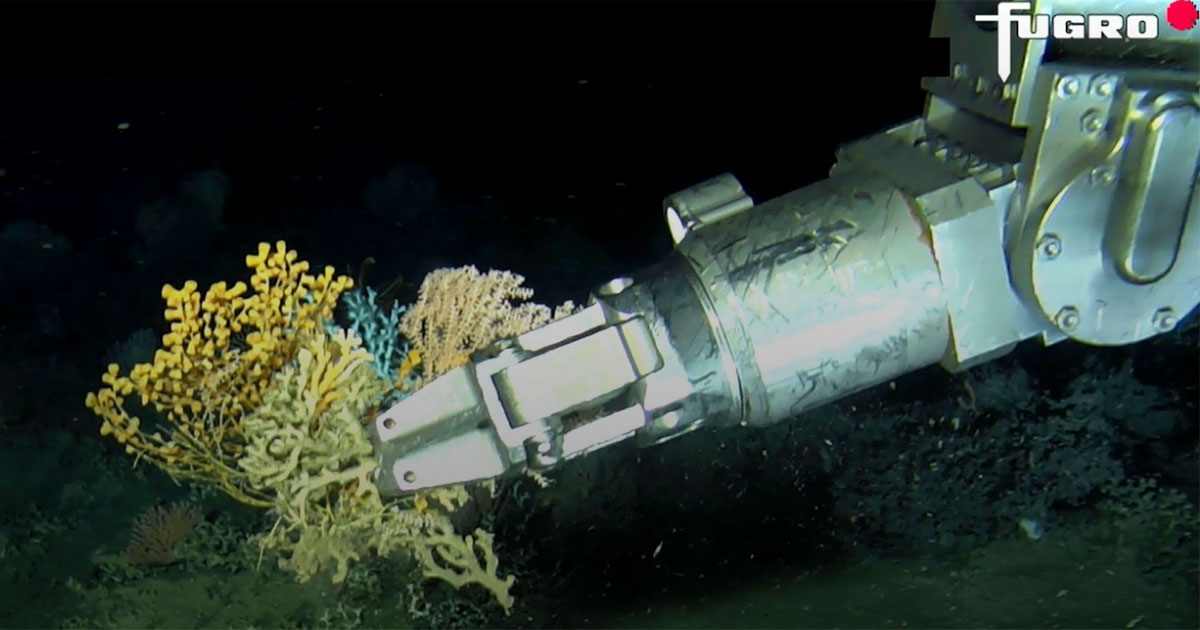Coral reefs are often called the ‘rainforests of the sea’, contributing to marine biodiversity and food security worldwide. As environmental changes threaten the survival of these critical ecosystems, scientists are working to improve corals’ resilience. Fugro recently supported this work during an expedition onboard the Fugro Aquarius.
Corals get their color and most of their food from symbiotic algae called zooxanthellae. Environmental changes, such as warming ocean temperatures, can stress corals, causing them to expel zooxanthellae from their tissues. Referred to as ‘bleaching’ this stress response makes the coral more vulnerable to disease and can lead to their death.
Rio de Janeiro Federal University’s Laboratory of Molecular Microbial Ecology (UFRJ-LEMM) has been leading research to reverse the deterioration of deep-sea coral reefs and help to prevent coral bleaching. Their work includes cultivating coral samples and then selecting microbes from these samples to improve corals’ stress resilience. UFRJ-LEMM refers to the research as Beneficial Microorganisms for Corals (BMC), and it is well known across the scientific community.
Fugro gets involved
UFRJ-LEMM approached Fugro about participating in an expedition sponsored by Shell Brasil to study deep-water corals' and sponges’ response to environmental changes and to develop BMCs. The project required collection of coral and sponge samples at 600-800 m water depth about 100 km off the coast of Brazil. Our experience providing remotely operated vessel (ROV) services in the region made Fugro a perfect fit.
After consulting extensively with UFRJ-LEMM and Shell to discuss the project’s technical requirements and operational challenges, a window of opportunity opened to deploy the Fugro Aquarius ROV support vessel for the project this past August.
Vessel preparations
To support the unique needs of UFRJ-LEMM, we transformed the Fugro Aquarius into a true ‘floating science facility’. Modifications included installing our FCV 3000 ROV systems with bio boxes beneath their frames for sample recovery, as well as an environmental laboratory to conduct several experiments; a cold unit for the storage of live species in 28 aquariums; and four tanks on the main deck comprising a total of 12,000 L of deep seawater for sample storage. We additionally mobilized two box corers, two deep-sea soil grabbers, water samplers and other sensors to collect current speed and direction, depth, pressure and temperature data.
 Fugro Aquarius deck before and after modifications for the scientific study
Fugro Aquarius deck before and after modifications for the scientific study
A Brazilian multi-university affair
Collaboration was one of the main drivers for the success of the scientific mission. Two representatives from UFRJ-LEMM were assisted by thirteen scientists from UFRJ and five other universities. Experts onshore were also connected through real-time streaming of the ROV camera images.
 ROV control room onboard the Fugro Aquarius
ROV control room onboard the Fugro Aquarius
Progress toward a healthier ocean
At the end of the 10-day mission, Fugro had successfully performed more than 100 ROV dive-hours, supporting the collection of more than 150 samples and the execution of 10 onboard scientific experiments. Collected samples were transported to the UFRJ LEMM laboratory and to the AquaRio aquarium, where additional and more complex studies are being performed to develop the BMCs.
Outcomes from this project will help the scientific community conserve deep-sea reefs around the globe, a pursuit that complements the United Nations Decade of Ocean Science for Sustainable Development (2021-2030), which we as a company wholly support. The UFRJ LEMM expedition was certainly a unique experience for Fugro, and a fantastic opportunity to contribute to a safe and livable world. We are grateful for the opportunity and wish the UFRJ LEMM team a very successful outcome for this project.



